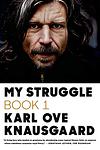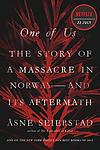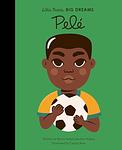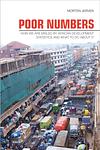The Greatest Norwegian, Brazilian "Nonfiction" Books Since 1950
Click to learn how this list is calculated.
This list represents a comprehensive and trusted collection of the greatest books. Developed through a specialized algorithm, it brings together 300 'best of' book lists to form a definitive guide to the world's most acclaimed books. For those interested in how these books are chosen, additional details can be found on the rankings page.
Genres
Countries
Date Range
Reading Statistics
Click the button below to see how many of these books you've read!
Download
If you're interested in downloading this list as a CSV file for use in a spreadsheet application, you can easily do so by clicking the button below. Please note that to ensure a manageable file size and faster download, the CSV will include details for only the first 500 books.
Download-
1. The Bookseller of Kabul by Asne Seierstad
This book provides an intimate and eye-opening look into the everyday life of an Afghan family. The narrative follows a bookseller in Kabul, who despite the oppressive Taliban regime, courageously continues his trade. The story delves into his family dynamics, the struggles of his two wives, his children's lives, and the societal norms and customs they navigate. It paints a vivid picture of life in Afghanistan, exploring the themes of love, courage, resilience, and the power of literature.
-
2. My Struggle by Karl Ove Knausgaard
The book in question is an autobiographical novel that delves deeply into the minutiae of the author's life, exploring his personal relationships, emotions, and the everyday experiences that shape his identity. It is a candid and introspective narrative that spans across various stages of his life, from childhood to adulthood, and examines themes such as family, death, love, and ambition. The author's unflinching honesty and detailed prose invite readers to reflect on the complexities of their own lives, as he scrutinizes the ordinary moments that, collectively, define who we are.
-
3. Child Of The Dark by Carolina Maria De Jesus
The book is a powerful and harrowing diary that provides an unflinching look at the brutal realities of life in the favelas of São Paulo, Brazil, through the eyes of a struggling single mother. The author documents her daily fight for survival and that of her children, as they contend with hunger, poverty, and the constant threat of violence. Her poignant observations and raw emotional honesty offer a deeply personal insight into the systemic social injustices and the resilience of the human spirit in the face of overwhelming adversity.
-
4. Os Nacionalismos Africanos by Mario de Andrade
"Os Nacionalismos Africanos" explores the rise of African nationalism during the mid-20th century, delving into the various factors that fueled the movement across the continent. The book examines the impact of colonialism, the emergence of Pan-Africanism, and the struggles for independence experienced by African nations. Through a meticulous analysis of historical events and political ideologies, the author provides a comprehensive understanding of the complex dynamics that shaped African nationalism and its enduring legacy in the post-colonial era.
-
5. Pedagogy Of The Oppressed by Paulo Freire
This book is a seminal work in the field of critical pedagogy that explores the complex relationship between the oppressor and the oppressed in educational contexts. The author argues that traditional pedagogical methods perpetuate existing hierarchies and suggests a new approach called "problem-posing education," which emphasizes dialogue and critical thinking to empower learners to question and challenge oppressive systems. The text is both a critique of the way education is often used as a tool of domination and a guide for how it can instead be transformed into a practice of freedom, helping individuals to achieve self-realization and societal change.
-
6. My Life And The Beautiful Game by Pele
The book is an autobiography by one of the greatest soccer players of all time, who shares his journey from the streets of Brazil to becoming a global sports icon. The narrative delves into his profound love for soccer, detailing his career highlights, personal life, and the challenges he faced along the way. It also explores his role in popularizing soccer across continents and his enduring impact on the sport, providing insights into his philosophy both on and off the pitch. The autobiography is not only a reflection on his illustrious career but also an inspirational story of dedication, passion, and the transformative power of sports.
-
7. One Of Us: The Story Of Anders Breivik And The Massacre In Norway by Asne Seierstad
One of Us by Asne Seierstad is a detailed account of the 2011 terrorist attack in Oslo, Norway, carried out by Anders Breivik. The book explores Breivik's background, motives, and planning leading up to the attack, as well as the aftermath and impact on the survivors and families of the victims. Seierstad's thorough research and interviews with those affected provide a comprehensive and emotional portrayal of the tragedy, shedding light on the complexities of extremism and the devastating consequences of hate.
-
8. Ecology, Community And Lifestyle by Arne Naess
"Ecology, Community and Lifestyle" is a philosophical text that outlines the principles of deep ecology, a movement emphasizing the intrinsic value of all living beings and the need for radical shifts in modern human societies to sustain ecological balance. The book delves into the interdependence between human life and the environment, advocating for a comprehensive transformation in our lifestyles and political systems to foster a sustainable relationship with the earth. It combines insights from ecology, philosophy, and sociology to propose a more harmonious way of living that respects the limits of the planet's resources and promotes a thriving, diverse biosphere.
-
9. A Death in the Family by Karl Ove Knausgaard
"A Death in the Family" is a deeply personal and introspective narrative that delves into the complexities of familial relationships, childhood, death, and memory. The protagonist, a writer, is forced to confront his past and his relationship with his alcoholic father after his death. The novel explores the impact of this death on the protagonist's life and his struggle to come to terms with his complicated feelings of love, resentment, and guilt. The narrative is a profound exploration of the human condition, the intricacies of family dynamics, and the lasting impact of grief and loss.
-
10. Pele: The Autobiography by Pele
In this autobiography, the legendary Brazilian footballer recounts his journey from a young boy with a passion for the game to becoming one of the most iconic figures in the sport's history. He shares insights into his upbringing, the challenges he faced, and the triumphs he experienced throughout his illustrious career. The book delves into his record-breaking achievements, including three World Cup victories, and his role in popularizing football across the globe. It also offers a personal look at his life off the pitch, including his contributions to various social causes and the legacy he hopes to leave behind for future generations of athletes.
-
11. Poor Numbers by Morten Jerven
This book critically examines the reliability of economic statistics in Sub-Saharan Africa, revealing a significant gap between the reported data and the actual economic realities on the ground. The author delves into the systemic issues plaguing statistical offices across the continent, including underfunding, political interference, and a lack of technical capacity, which collectively contribute to the production of inaccurate economic data. By analyzing the processes and methodologies used to gather and report these statistics, the book sheds light on the profound implications these "poor numbers" have for policy-making, economic development, and international perceptions of African economies. Through this exploration, it calls for a reevaluation of how economic data in these countries is collected and used, advocating for reforms that could lead to more accurate and meaningful measurements of economic progress.
Reading Statistics
Click the button below to see how many of these books you've read!
Download
If you're interested in downloading this list as a CSV file for use in a spreadsheet application, you can easily do so by clicking the button below. Please note that to ensure a manageable file size and faster download, the CSV will include details for only the first 500 books.
Download







